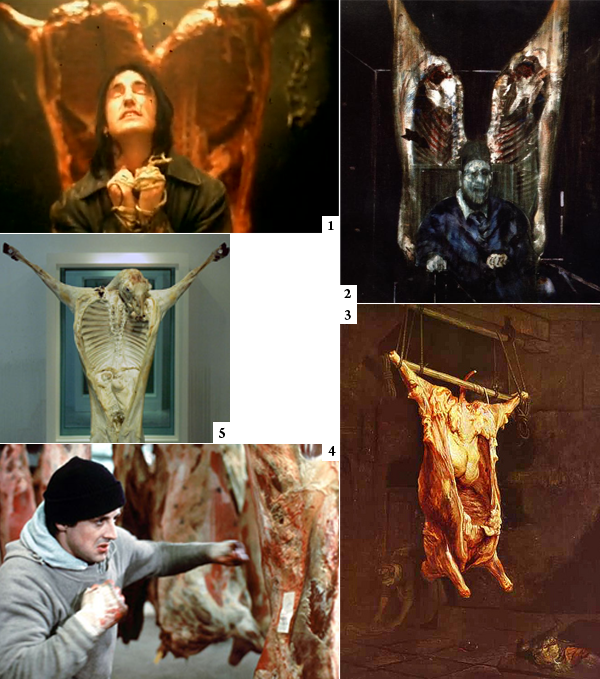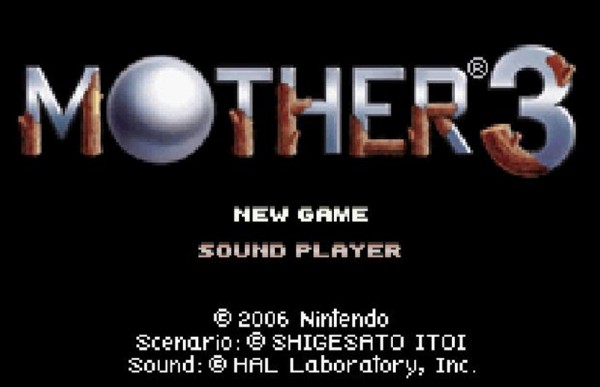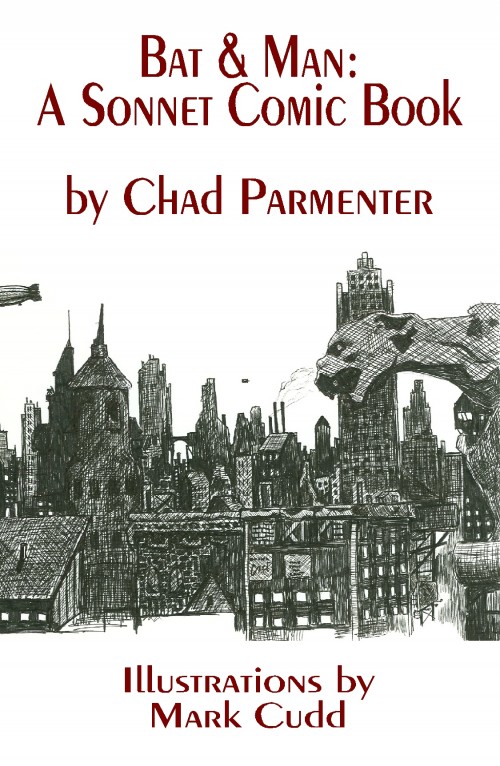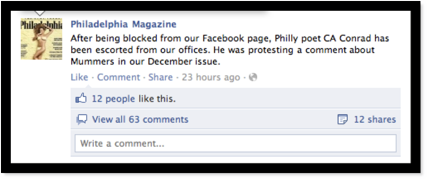The marks we leave on borrowed things
I used to have a real problem with people who messed up their library books. This is to say that I had a problem with myself. Even when I worked at a library, shelving books some thirty hours a week, I never got over the habit of eating while I read, and I never stopped eating the worst possible foods, the ones most dangerous to books — green curry, pasta with tomato sauce, soup, coffee, etc. I made stains. I shed hairs and skin into the books. I dog-eared pages that I wanted to look at again, sometimes. I left the books face-down, open on the arm of the couch, so that the covers warped. Still, it made me angry to see that others did the same things I did (and probably less often). One time I was reading (I forget the book) and my nose started bleeding. I didn’t know why. One fat drop landed on the page. I don’t remember what color it turned. READ MORE >
Workers in a Field
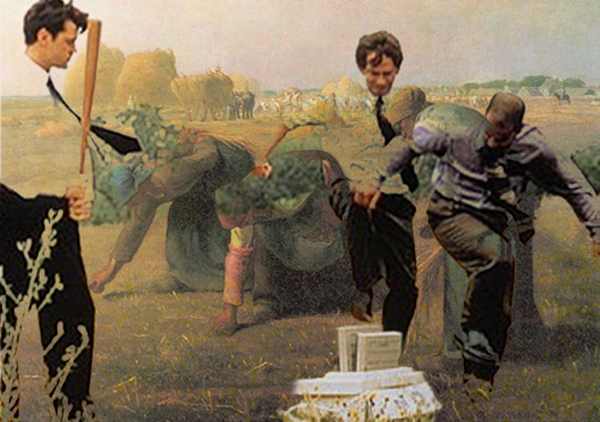
Jean-François Millet’s “The Gleaners” (1857) shows three peasant women gleaning a field after a harvest of crops, its depiction of the lower class most irksome to the French upper class, who didn’t want rural poverty and intimations of the 1848 French revolution in their Salon. I imagine artisanal cheese melting in their mouths and coursing straight to their hearts. Millet is just as known for “The Sower,” later copied by Van Gogh, and from which Simon & Schuster’s colophon is derived. Realism is used to describe Millet’s paintings, implying a kind of artistic integrity or moral clarity necessary for the unglamorous staunch view of the world; the problem is that Realism is also used to describe our later Renoir and Manet, whose pasty bourgeois subjects are safe from the sun under parasols and hands of shadows taught by the leaves above to protect the smiling faces. In fact, from the field to the park, the real R-word is Romantic, the aesthetically adroit projection of an ethos by which the lesser, us, learn to live. In 1999, three actors were allowed to do what they, likely with grim office jobs themselves in their past before said success, had, like us, fantasized doing. They were told to walk into a field subconsciously on the perimeter of an office building and destroy a fax machine with only their feet, fists, and one bat. They took turns with the bat, a phallic democracy both homoerotic and most American. Directer Mike Judge (Office Space, Beavis & Butthead), whose genius shall not be argued here, later added a Geto Boys song as an ironic, and mildly racist, “juxtaposition” to the whiteness of their white collar plight and excised rapture. When faceless bureaucracies are embodied by the broken means meant to convey them, it’s time to freak out. That a fax from afar is printed on recipient paper and not the sender’s is often forgotten, with people getting angry at the sender for being out of paper. The age of reason is now unreasonable. To come full circle is to start all over again, and I sometimes wonder if I’d be happier before the industrial revolution. I’d have strong arms, a nice tan, and no tweets to worry about. If the reader does not know where this is headed, may he or she be pointed outside, to workers in a field, whose very work seems futile but is somehow necessary in small unseen ways, from flax to fax, of horrible jobs existing for a reason, of civilization moving along slowly, before the sun sets, through near darkness and its nightly requiem of crickets, until it rises again.
Mother 3: An Appreciation
So, uh, hi. My name is Mike. Today I’m going to talk about the most moving experience I’ve ever had with a video game.
On June 5, 1995, a game called EarthBound was released in the US. It was a Super NES role playing game (RPG) that immediately stood out for its unusual setting: while most RPGs took place in fantasy worlds with princesses, dragons, and the occasional magic-powered WarMech, EarthBound took place in an off-kilter version of the contemporary US. Instead of villages, EarthBound had cities. Instead of sword-wielding warriors, it had children with baseball bats and yoyos. Instead of healing your characters with magic potions, you fed them pizza and French fries. And instead of earning cash by killing monsters and rifling through their pockets, you got an allowance, which you could withdraw from any ATM. You saved your progress by calling your father and telling him about your day. You still did fight monsters, of course, and the game’s hero had psychic powers. It was a fun, silly little game with a surprisingly moving ending. The game sold poorly in the US (and with the sort of brilliant marketing team that thought “This game stinks!” would be a good slogan, I wonder how that happened), but the people who liked it tended to really like it. A little too much, maybe. READ MORE >
BOOKS + BEER: Dune and Budweiser
Why? Because a student handed me the book and suggested I read it? No. Students routinely want me to read books and they are usually this one, or Neil Gaiman and I’m not reading any fucking Neil Gaiman. I’m an adult. I read it because so many of my students are writing Sci Fi lately. From a genre trickle to categorical gusher. Could be my doing this semester. I instructed them to write a QUEST. I think some of their brains went quest=genre, though I showed them many, many quests that were just like two dudes trying to get to Hollywood or the latest Jennifer Aniston Must-Get-A-Man flick or just some guy swimming away into cognitive dissonance or a newlywed couple needing to rob McDonald’s but no/no/no they go genre, fantasy or Sci Fi. That’s OK. I mean we had no zombies. (Best zombie film to show students about genre irrelevant—characters matter.) I could be like some in academia (and literary publishing) and say no to genre. OR…I could admit many literary works are indeed gestures of genre…OR I could/should meet the students half way and feel a need to increase my knowledge base on Sci Fi, admit I haven’t read Sci Fi in many years (is Vonnegut Sci Fi?) and so feel a pedagogical necessity to read something and Dune is on all the lists and I know Sting is in the movie version (though I’ve never seen it and have no plans to) and so here we go into the box, the hour glass, the sand.
Three things we know: 1. You can show all the patriotic commercials in the world, but Anheuser Busch is still a company owned by Belgium. 2. Women die when they get near August Anheuser Busch IV. 3. Budweiser is Ok to drink. Not great. Not absolutely bad. (Fuck off, beer snobs, we know how much you blar this beer and, honestly, it’s a little ridiculous.) But OK, an OK beer, in certain situations…
Saturday Fodder
In a recent interview with Bat Segundo, Dennis Cooper said, “Well, yeah, my books are in some fundamental way always about reconciling confusion. Because that’s of super interest to me. And language presents this idea that confusion can be corralled and all that stuff. And it can’t. And that tension does interest me.”
“Reconciling confusion” is a terrific way of describing the intellectual/affective exercise at the heart of what draws me to literature. In the absence of confusion, most books quickly lose my interest. Probably this is why I am drawn to “experimental literature” and why I see a connection between it and “genre fiction” (mystery, horror, and sci-fi especially — all three of which rely upon varying levels of confusion/opacity/defamiliarization).
I am currently reading Cooper’s newest book, The Marbled Swarm, which reinvigorates language in ways akin to how Godard reinvigorated cinema between 1961-1967. Affinities aroused so far include: Pauline Réage’s The Story of O, Vítězslav Nezval’s Valerie and Her Week of Wonders, and various of Edgar Allan Poe’s finest stories (e.g. “The Fall of the House of Usher” and “The Pit and Pendulum”). I won’t say anymore about it yet, as I am still caught in its spell and must finish and untangle before expressing the flood of my admiration, but suffice to say: if you have not yet cracked its spine I implore you to do so immediately. Something dark and mysterious haunts each sentence. In the near future I intend to elaborate on how I see The Marbled Swarm as exemplary of an emergent constellation of texts I want to identify as Nouveau Gothic.
But not now. That’s just a teaser trailer. For now, below the jump, in lieu of music (as I’ve done the past few months) I’ll share with you the current cluster of tabs I have open on my computer. Food for your writing…perhaps?
Now Showing: Goat in the Snow

Some people are unreasonably unselfish, and Emily Pettit is one of them. An editor for Notnostrums and Factory Hollow Press, she is also the new publisher of jubilat, which, under her thumb, just released a bad motherfucker of an issue (see: Julia Cohen, Michelle Taransky, James Tate, Rachel Glaser, Dara Wier, lots!). Her devotion to art is exemplary and climbs no ladder, but aims at making our anxious little world a bigger, bettered one. It should come then as no surprise then that her poems, too, are of the giving kind; and her new book Goat in the Snow, now available for pre-order from BIRDS LLC, gives and gives and gets it right. Im not one to blurb (ed note: bullshit), but when a wise old man once again feels the change coming in his bones and scrys the truth, you listen:
Her kindness is always ahead of us, anticipating the problems we will or won’t run into, and we always end up in a different, precise place than the one we started out from, as she reassuringly tells us: “You know/ you know you know. It’s all uncertainty/ and your neck. You walk slowly/ in a calm voice.” Goat In The Snow is multicolored, ever-changing, a delight to try to clasp. –
JOHN ASHBERRY
Reading Comics: Chad Parmenter’s Poetics
Bat & Man: A Sonnet Comic Book is a chapbook of sonnets about Batman. They’re persona poems spoken in dialogue, between Selina Kyle and Bruce Wayne, with the driving narrative that she has woken him up from a nightmare, and he describes it to her, sonnet by sonnet. Each one adds to what you might recognize as the ritual activity of most Batman comics and other media: retracing what led Bruce Wayne to become Batman, revising that story in the process. This revision is part Citizen Kane and part Yeats, with a kind of comic-gothic inflection to the whole thing that might be what Stephen Burt calls Lowellian, in his essay, “Poems About Superheroes.”
Philadelphia Magazine vs. CA Conrad
There’s a lot of talk currently surrounding a recent article in Philadelphia Magazine and the public confrontation between the publication and CA Conrad. In the magazine’s December “List” issue, the Philly mag devoted one list to things the city would be better off without, i.e. “10 Things We Need to Get Rid Of” (seemingly available in print only). Included on the chopping block was the city’s long-running tradition of the Mummers Parade. The Philadelphia poet disapproved, claiming that the Mummers was a street level, middle class event dear to the city, its history, and its people and that the magazine was exercising a characteristically elitist, classist, 1% attitude. He first voiced his complaints on the Philadelphia Magazine Facebook page requesting they apologize to Mummers. The magazine’s online editor eventually blocked him from commenting, which resulted in Conrad visiting the office to speak with the magazine personally and subsequently being removed by security. You can begin to follow the story with the editor’s PR-ish letter on CA Conrad’s comments and behavior, then move to CA Conrad’s account of the event and his being escorted out of the office building. I would also encourage you look at the comments made by the public on these articles and the action on the magazine’s Facebook page; the majority seems to be supporting Conrad. Some are especially outraged that editor Tom McGrath (as a Philly culture editor) didn’t even know who CA Conrad was, or that the magazine would Facebook-flaunt that Conrad had been removed from their offices.
Personally, upon just hearing this story, I admire Conrad’s determination to voice his opinion, objecting to and requesting dialogue about the magazine’s choices. His walk to the Philadelphia Magazine’s offices on behalf of a cultural tradition or group of people he values is a tangible, powerful act. I like the artist like this, refusing to be safely contained as the Philadelphia Magazine attempted to do in denying Conrad visibility on Facebook or in an office, instead requesting he write an e-mail (which basically doesn’t exist in the public realm). I think his choice solidifies the role of the artist or poet in his/her city. He expanded the immediacy and impact of his voice by committing the physicality to back it.
But this event also raises a lot of questions for me about the responsibility of an artist or individual to their community, about the visibility or method of communication being given, taken, or denied here, etc. I’d love some thoughts as this sinks in.
***
Katie Smither is an artist and writer living in Austin. She works at the Harry Ransom Center at the University of Texas and does a lot of things on the side, or strike that and reverse it.
John Ashbery is a chill bro
Cool questions!


